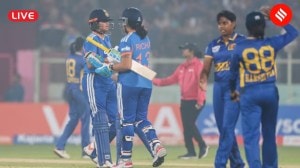The past kicks back
Seventeen years after, a clean chit to a dead former prime minister. But this is just one of the many piquant ironies that have attached the...

Seventeen years after, a clean chit to a dead former prime minister. But this is just one of the many piquant ironies that have attached themselves to the Bofors case. And as the Delhi High Court clears Rajiv Gandhi of the charges of criminal conspiracy and cheating, it is time perhaps to look back and gently count them out. In no particular order: the investigations that have outlived at least three of the scandal8217;s prime figures 8212; Rajiv Gandhi, Bofors agent Win Chadha and S.K. Bhatnagar, the defence secretary who handled the negotiations; the sum of money that so shocked the nation in April 1987 when the Swedish Radio broadcast claimed that Rs 64 crore was paid as a bribe to clinch the deal to purchase guns from AB Bofors and that seems such a piffling figure by currently believable scam amounts; the angry men who led the charge against Rajiv Gandhi then, now protective by Sonia8217;s side, be it Jaipal Reddy, Laloo Prasad Yadav, stalwarts of the Left.
But Bofors is not just replete with ironies. It is also a fine, and tragic, example of what a corruption case must not become, must never be allowed to become, in this country. For a nation still searching for truth and closure, it offers some sobering lessons. Looking back, Bofors was always cast in wholly political terms. In the beginning, it was the war cry of the motley Opposition groups that took on Rajiv Gandhi, he of the 8216;Mr Clean8217; tag and with the unbeatable majority. Then, having laid him low, it was given over to successive political regimes 8212; it was on the governments entirely to blow hot and blow cold. Frantic activity, in which investigating officials burned up air miles between India and Malaysia, Sweden and other parts of the globe, all at the Indian tax payers8217; expense and all apparently in vain, alternated with interminable periods when the proceedings dawdled and became opaque. Through it all, it was also clear that it remained a very personal thing. Bofors was the weapon his political opposition used to put Rajiv Gandhi in the dock, his name was included in the chargesheet long after his death.
So now that Rajiv Gandhi has been exonerated by the high court, does it mean we can all move on? Have we got to the bottom of the case? Have we traced the trajectory of those kickbacks that we know were paid for sure? Are the guilty punished? Truth is, we are no nearer to solving the case. We must remind ourselves that this case was about criminal conspiracy, bribery, criminal misconduct by public servants, criminal breach of trust. It was not about one former prime minister. Now that his name has been cleared, even though much too belatedly, can we hope that the real case will stand up? Because the nation deserves a real closure.
- 01
- 02
- 03
- 04
- 05































